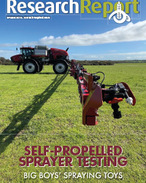This article is 8 years old. Images might not display.
The study commissioned by Hort Innovation focused on volatile organic compounds (VOCs) or chemicals that float in the air at room temperature. Mostly found in carpets, furniture and paint VOCs have been linked to increased allergies, bad moods and reduced productivity.
Researchers at RMIT University and the University of Melbourne undertook a meta-analysis of more than 100 research papers from around the world.
University of Melbourne researcher Dominique Hes said human beings spend less and less time around nature with current data showing urban dwellers spend 90% of their time in indoor environments – resulting in a high level of exposure to indoor contaminant compounds.
“Our aim was to take the world of research and synthesise the knowledge into a scale of benefits provided by plants by grouping them into two categories: air quality and wellbeing,” she said.
“Based on the leaf area and the species’ ability to remove certain contaminants, we were able to calculate how many of our sample plants were needed to improve air quality and wellbeing in spaces of various sizes.”
The University of Melbourne researcher said this study, also found unequivocally that indoor plants improve air quality by filtering airborne toxins caused by organic chemicals in things like paints and furniture finishes.
Hort Innovation chief executive John Lloyd said the study’s findings would help arm nursery men and women with advice based on science, and they also led to the development of an app to help users make their homes healthier.
“No-one knows more about plant varieties than nurseries,” Lloyd said.
“So, we have combined that industry’s knowledge with this research to make various plant and species recommendations for different sized rooms with varying light levels. And the great news is, this is all available in a new, free Plant Life Balance smart phone app.”
The app allows users to upload a photograph of their space to give it a health rating. If the rating is low, they can use the app to drag and drop plants over the photo of their area to see how a number of plants can improve their health, wellness and air quality.
Visit the Plant Life Balance website to download the free app HERE.























